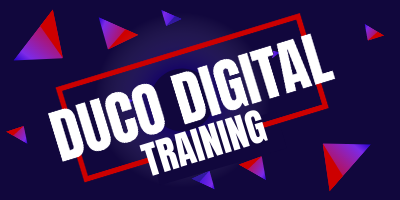Aug 14
/
Matt Dowling
Investing in Employee Training: The Key to Retaining Top Talent

In today's competitive business landscape, retaining top talent is as crucial as acquiring it. One pivotal method that has emerged as a proven retention strategy is investing in employee training. By allocating resources to the professional development of staff, businesses not only enhance their capabilities but also significantly boost employee satisfaction and loyalty.
The Changing Work Landscape
The contemporary worker seeks more than just a paycheck. They yearn for opportunities to grow, learn, and progress in their careers. This evolution in employee expectations demands that employers reevaluate and reshape their approaches to talent retention.
Why Investing in Training Matters:
1. Enhanced Productivity and Performance
Proper training equips employees with the latest techniques, knowledge, and tools to perform at their best. This, in turn, boosts productivity, optimizes processes, and leads to improved overall business performance.
2. Boosted Employee Morale and Job Satisfaction
When employers invest in their employees' futures, it's a clear signal that they value and trust their workforce. This enhances employee morale, increases job satisfaction, and fosters a more engaged and motivated team.
3. Reduced Turnover Rates
The costs associated with high turnover rates can be exorbitant. Beyond the immediate monetary expenses of recruitment, onboarding, and lost productivity, there's also a potential negative impact on company culture. By investing in employee training, businesses can drastically reduce these turnover rates, ensuring they keep their best talent onboard.
4. Staying Ahead of Industry Trends
Industries evolve, and staying up-to-date with the latest trends, technologies, and methodologies is crucial for business success. Regular training ensures that the workforce remains current, adaptive, and forward-thinking.
5. Attracting Top Talent
When businesses gain a reputation for nurturing and investing in their employees' growth, they naturally become magnets for top-tier talent. Potential recruits are more likely to be drawn to companies that prioritize professional development.
The ROI of Training
While there's an undeniable upfront cost associated with providing training, the long-term return on investment (ROI) is substantial. By cultivating a culture of continuous learning, businesses experience:
- Reduced Hiring Costs: The cost of recruiting, onboarding, and integrating new employees is significantly higher than the cost of retaining existing talent.
- Increased Innovation: Well-trained employees bring fresh perspectives, ideas, and approaches that can lead to innovative solutions and products.
- Enhanced Reputation: Companies that prioritise employee growth often enjoy a positive reputation in the industry, attracting both clients and top-tier talent.
In the age of the "knowledge economy," learning and growth are paramount. By aligning business strategies with employee development, companies not only ensure their competitiveness but also foster a committed, motivated, and satisfied workforce.
To businesses looking to carve out their niche and build lasting success: remember that your most valuable asset is your people. Investing in their growth is not just a smart business move; it's an imperative.
The Changing Work Landscape
The contemporary worker seeks more than just a paycheck. They yearn for opportunities to grow, learn, and progress in their careers. This evolution in employee expectations demands that employers reevaluate and reshape their approaches to talent retention.
Why Investing in Training Matters:
1. Enhanced Productivity and Performance
Proper training equips employees with the latest techniques, knowledge, and tools to perform at their best. This, in turn, boosts productivity, optimizes processes, and leads to improved overall business performance.
2. Boosted Employee Morale and Job Satisfaction
When employers invest in their employees' futures, it's a clear signal that they value and trust their workforce. This enhances employee morale, increases job satisfaction, and fosters a more engaged and motivated team.
3. Reduced Turnover Rates
The costs associated with high turnover rates can be exorbitant. Beyond the immediate monetary expenses of recruitment, onboarding, and lost productivity, there's also a potential negative impact on company culture. By investing in employee training, businesses can drastically reduce these turnover rates, ensuring they keep their best talent onboard.
4. Staying Ahead of Industry Trends
Industries evolve, and staying up-to-date with the latest trends, technologies, and methodologies is crucial for business success. Regular training ensures that the workforce remains current, adaptive, and forward-thinking.
5. Attracting Top Talent
When businesses gain a reputation for nurturing and investing in their employees' growth, they naturally become magnets for top-tier talent. Potential recruits are more likely to be drawn to companies that prioritize professional development.
The ROI of Training
While there's an undeniable upfront cost associated with providing training, the long-term return on investment (ROI) is substantial. By cultivating a culture of continuous learning, businesses experience:
- Reduced Hiring Costs: The cost of recruiting, onboarding, and integrating new employees is significantly higher than the cost of retaining existing talent.
- Increased Innovation: Well-trained employees bring fresh perspectives, ideas, and approaches that can lead to innovative solutions and products.
- Enhanced Reputation: Companies that prioritise employee growth often enjoy a positive reputation in the industry, attracting both clients and top-tier talent.
In the age of the "knowledge economy," learning and growth are paramount. By aligning business strategies with employee development, companies not only ensure their competitiveness but also foster a committed, motivated, and satisfied workforce.
To businesses looking to carve out their niche and build lasting success: remember that your most valuable asset is your people. Investing in their growth is not just a smart business move; it's an imperative.

Empowering professionals globally with technical skills,
ethics and knowledge to build careers today and for the future.
Pay Today or Spread the Cost

Career Pathways
Company
Partnerships
© 2025 Duco Digital LTD.
Registered in England 11214938.
VAT number 371532213.
